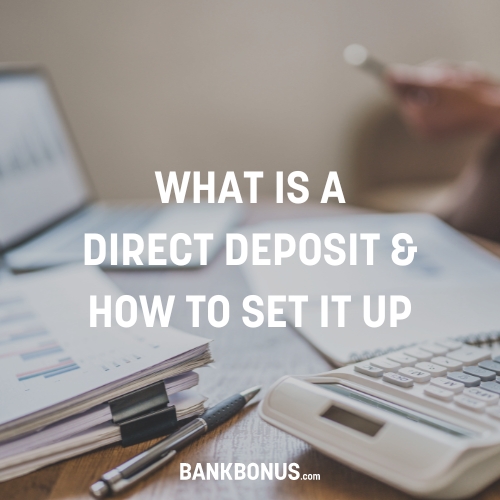If you share expenses with someone, setting up a joint account might have crossed your mind. Joint bank accounts make sense in a lot of different scenarios, but is a joint account a good idea for you?
In this article, we will look at the different types of joint accounts, alternatives, as well as some of the best banks for joint accounts available today.
What is a Joint Bank Account?
Generally speaking, a joint bank account is a joint checking account with shared ownership of the funds within that account.
This does not mean there is just one type of joint account. Because joint accounts have shared ownership, unlike individual accounts, different versions exist that determine what happens should something happen to either party.
Here it’s important to understand that laws vary from state to state. This means that talking with a representative from the financial institution of your choice or a financial advisor can help you make sure you understand the options available to you in your circumstances.
Types of Joint Bank Accounts
There are three main types of joint bank accounts:
1. Joint tenants with rights of survivorship
This account provides an equal division of ownership. This means that should something happen to one of the account holders, any funds in the account are automatically passed to the surviving owners.
2. Joint tenants in common
This account provides mechanisms so that each of the account owners can specify what happens to their portion should something happen. This account is subject to probate, but this can be avoided by adding a payable-on-death device.
3. Tenants by the entirety
This account works just like joint tenets with the right of survivorship but provides some protection against liability and claims. This type of account is not available in every state and is not subject to probate.
How to Open a Joint Bank Account
While the procedure to open a joint bank account will vary from one bank to the next, generally speaking, it’s a quick and easy procedure. In most cases, it follows the same steps as opening a regular checking account, with the main difference being that there are two signatories.
This means that you will need to have their details at hand, including:
- Photo IDs such as driver’s license
- SSN (social security number)
- Personal information
- Contact information
…among other details. Depending on the bank or credit union, you might also be required to deposit money for the account to be considered active.
Before signing all required papers, whether you do it online or at a branch, make sure that you agree with the other person on how the account will be managed and what happens should someone overdraft the account.
Learn More:
Pros and Cons of Joint Bank Accounts
Just like everything else, joint accounts have their pros and cons. Understanding what these are and how they relate to your financial goals and requirements can help you decide if a joint account is an answer to your financial plans.
Here are some of the pros and cons of joint accounts:
Pros:
- Simplifies financial planning
- It makes it easier to pay for joint expenses
- Useful to help kids open a savings account and learn about personal finance with a parent’s oversight
- Help older parents and other family members manage their money
- Can help you avoid paying monthly checking account fees by pooling funds
- Accounts are insured
Cons:
- Joint bank accounts require you to trust the co-owner
- If all parties don’t contribute equally, this may cause arguments
- Easier to overdraw
- Limited privacy
- Depending on your state, creditors might be able to go after money in the account
Alternatives
If you’re not ready to make the joint bank account step yet, there are several alternatives that you might want to consider. Do keep in mind that none of these accounts work like joint accounts but can provide you with a workaround without the joint ownership.
The important thing here is to understand what you truly want to achieve and then pick the right account for you.
1. Linking accounts
Linked accounts can make it easier to transfer money between accounts without giving up the privacy and independence of your account. Not all accounts can be connected, so you might need to ask your bank for more information about linking accounts.
2. Convenience accounts
Convenience accounts are owned by one person who allows another person to carry out several banking tasks. Although not widely available, the account’s ownership is not split, meaning you retain full ownership of the account and money.
3. Power of attorney
Just like convenience accounts, when you grant someone power of attorney over your account, you give them the ability to manage your finances on your behalf. Money must be spent on your benefit, and any money in the account goes to your estate should the worst happen.
Do You Need To Open A Joint Bank Account?
While many people might think that joint bank accounts are only for married couples, this is not always the case. You can have shared savings accounts or checking accounts with just about anyone, even if you’re not married or related.
If you share financial responsibilities with another person, even if that person is not your significant other, it might make sense to open a joint bank account with that person. But there are several things you need to consider, which we will be covering throughout this article.
More importantly, there needs to be an element of trust between the two parties opening a bank account. Money tends to be very personal, and joint accounts give equal rights to both parties. This means that trust is crucial, along with the ability to communicate openly.
If you have any expectations whatsoever, make sure you make them known beforehand and make sure you give the other person the time and space to voice theirs. This will help you ensure that things run smoothly going forward.
You should also be careful of eligibility criteria, which can change from one bank to the next. Having a good credit score and US citizenship are some of the requirements. Each bank will list these on its website, so make sure you keep an eye open for this information.
Frequently Asked Questions
How do joint bank accounts work?
In most cases, joint bank accounts work like regular checking accounts. The most significant difference here is that the account has joint ownership. This means that it will not be just you who can spend the money in the account and take advantage of any of the available banking features available.
How do you open a joint account?
Opening a joint account is easy and follows the same procedure as opening a regular bank account. Of course, both parties’ information needs to be entered during the sign-up process, and both parties need to sign any agreements with the bank.
Which bank is best for a joint account?
There is no one best bank for opening a joint account. Since we all have different financial goals and requirements, the best bank will be the one that can best meet your needs. Make sure that you take the time to speak to the other person to understand what is important for both of you, then work together to find the best account for both.
Are joint bank accounts a good idea?
This will largely depend on what you want to achieve and how much you trust the other person. Make sure you set some ground rules before and take the time to ask the bank about what happens to the money should something happen to either of you.
Who owns the money in a joint bank account?
The money is owned by both joint account holders equally. Depending on how the account is structured, should one of the signatories pass away, the money can either go to their estate or be automatically transferred to the surviving account owner. Your bank should be able to better help you with what options are available to you since they can change from one state to another.
Is a joint bank account a good idea for you?
Opening a joint account is a big step – but there are also many benefits to having one, especially if you’re sharing things like household expenses, auto insurance, or car payments with someone.
Having a joint bank account can help you improve your money management skills and can also add an element of oversight on your spending habits since your partner will have full access to the account.
This does not mean that you should go into it without doing your homework. Trust is essential when it comes to joint accounts, and you need to fully trust your partner.
Even so, you might want to consider also having separate accounts with the same financial institution or a completely separate one. This can help you remain financially safe.





Comments are closed.
Comments are closed here.